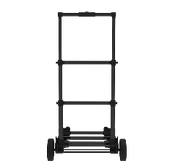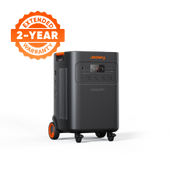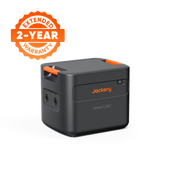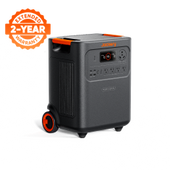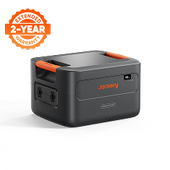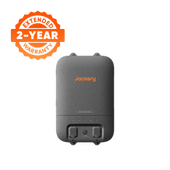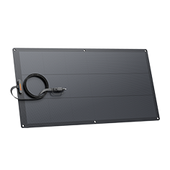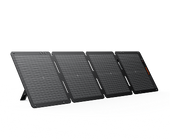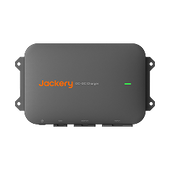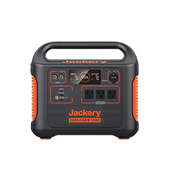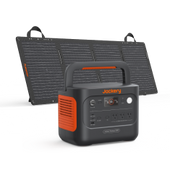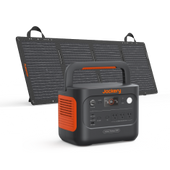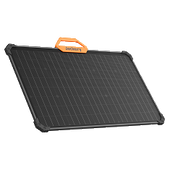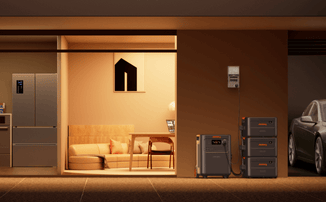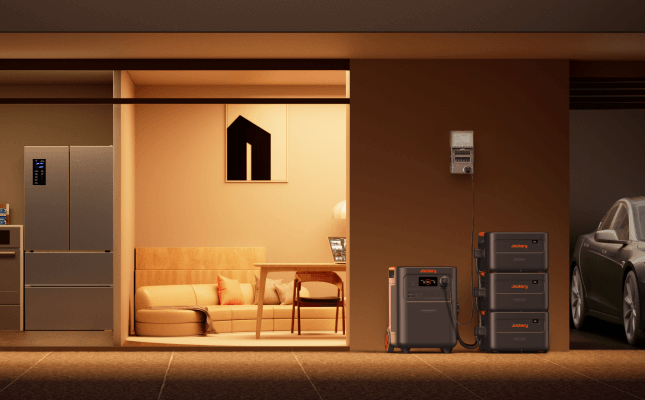Ultralight Backpacking 101: Gear, Tips, and Basics
Hiking is an adventurous experience, but a fully-loaded backpack can make it tiring and exhausting. Instead of enjoying nature's breathtaking beauty while hiking, you'll struggle and work hard with each step to haul unnecessary gear. That's why many backpackers choose ultralight backpacking. It's a unique style of backpacking that emphasizes carrying the least amount of equipment and weight while hiking.
This ultra backpacking guide reveals what ultralight backpacking is, what you should carry in your lightweight bag, and tips to make your hiking more fun. We will also discuss how a compact and lightweight Jackery Explorer 300 Power Station can help you charge all your hiking appliances. With a battery capacity of 293Wh, the power station is capable enough to charge devices like smartphones, cameras, etc.
|
Jackery Explorer 300 Power Station |
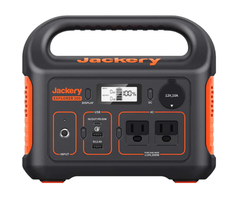 |
|
- 294Wh capacity to power hiking appliances - Weighs only 7.1 lbs (3.2 kg) - Features a sturdy handle for easy carrying - Powers six small devices simultaneously - Safe and reliable charging solution |
What is Ultralight Backpacking?
Ultralight backpacking is a type of foot travel where the backpackers carry an extremely light load on their back. While there is no fixed weight load considered to be ultralight, the base weight of ultralight backpacking is nearly 10 lbs or 4.5 kg.
The idea behind switching to ultralight backpacking is carrying less weight and covering more miles without feeling tired. It also means you can explore new places on foot without putting more pressure on the joints.
The Pros and Cons of Ultralight Backpacking
As the popularity of hiking has skyrocketed, so has the idea to try different types of backpacks. Similar to all traditional backpacking, ultralight backpacking comes with pros and cons. Whether you're a pro backpacker or it's your first time on the trails, you need to weigh the pros and cons of ultralight backpacking before moving ahead.
Pros of Ultralight Backpacking
Some of the main reasons why you should definitely try ultralight backpacking include:
- Improved speed and efficiency
- Reduced risk of injury
- Increased mobility
- Enjoyable experience
- More versatile and campsite options
- Highly accessible backpacking
Cons of Ultralight Backpacking
Now that we have covered the benefits of ultralight backpacking, here is why this hiking type is not suitable for you.
- More expensive ultralight backpacking gear
- Limited carrying capacity
- Less comfortable due to fewer appliances
Ultralight Backpacking Vs. Lightweight Backpacking
While both ultralight and lightweight backpacking are popular ways to hike faster by carrying less load, they come with a few differences.
The ultralight backpacker generally carries a base weight of less than 10 lbs or 4.5 kg, while a lightweight backpacker can carry a base weight of 15 lbs or 6.8 kg in the United States.
The base weight here refers to the combined weight of all the hiking gear, excluding water, fuel, and food. The latter weights, like food, fuel, and water, belong to consumable weight.
In ultralight backpacking, the main aim of the hiker is to downsize the base weight load and get rid of non-essential gears than in lightweight backpacking.
Besides weight, comfort is another aspect that differentiates ultralight backpacking from regular or lightweight backpacking. While the latter focuses more on the convenience of the hiker by providing more gear and resources, ultralight backpacking means carrying only the essentials to crush more miles in less time.
How to Determine the Pack Weight?
If you are a newbie to backpacking, the terms like "base weight" and "pack weight" might sound confusing. In this section, we will examine what these terms mean and how you can determine the pack weight.
Base Weight
Base weight refers to everything in your hiking backpack that is not consumable. It can be anything ranging from a tent, hiking appliances, and electric gadgets. However, it does not include the clothing and footwear you wear while hiking.
Worn Weight
As the name defines, the worn weight means anything that you will wear during the hiking trip. It can include sunglasses, a hat, a T-shirt, hiking boots, etc.
Consumables
Consumables mean anything that you will consume or require during your trip. This includes fuel, food, and water. The best way to minimize this weight is by carrying lightweight or dehydrated food.
Total Pack Weight
The total pack weight means adding base weight, worn weight, and consumables. Understanding the full weight load is the key to successful hiking.
Ultralight Backpacking Gear: What to Pack?
It can be expensive to switch to ultralight backpacking, but careful planning of the gear list can help you reduce the expenses. You need to focus on the "big three" and keep them under 10 pounds. The big three include a tent, a sleeping bag, and a backpack.
Tent: The choice of tent depends on how many people you plan to camp with. For instance, a 1-person camping tent would be the right fit if you want to camp alone. However, if you plan to camp with your partner or friend, consider opting for a 2-person lightweight tent.
Backpack: Rather than choosing a traditional bag, invest in the lightweight, frameless, and minimally-padded ultralight backup that has little to no weight of its own.
Sleeping Bag: Consider investing in a sleeping bag without a hood and with the right warmth. This is because the extra heat of the tent means it will have extra weight, making it harder for you to carry.
After the big three, you must focus on other heaviest items like food, water, and fuel.
Water: Properly research the place where you want to camp or hike. List down the water streams and lakes to understand how much water you will have to carry.
Food: Bring enough food so you can have at least 3000-4000 calories daily. Some easy-to-carry items you can opt for include instant coffee, instant oatmeal, protein bars, nuts, and other dry foods.
Fuel: You can always carry your own fuel to cook food. However, this can quickly add to the overall weight and make your ultralight backpacking more expensive. The simple yet effective way to reduce the cost of energy is by switching to a solar power station. You can charge the power station using solar panels, wall outlets, or AC outlets and start powering all cooking appliances and electrical gadgets.
Jackery is the pioneer in selling robust and powerful Explorer Portable Power Stations, SolarSaga Solar Panels, and Solar Generators. Jackery Explorer Power Stations are portable, lightweight, and sturdy powering solutions for campers. You can power your smartphones and other electrical appliances while camping or hiking.
The two popular Jackery Explorer Power Stations for Backpacking include:
Jackery Explorer 300 Portable Power Station
With a battery capacity of 293Wh, the Jackery Explorer 300 Portable Power Station is ideal for short camping trips. You can charge up to six appliances simultaneously. In addition, its sturdy design, durable handle, and small size make it easy to carry when and wherever required.

Jackery Explorer 240 Portable Power Station
Digital Trends has alluded to Jackery Explorer 240 Portable Power Station as the "Best portable power station for use in the outdoors." Weighing 6.6 lbs, the power station can charge small appliances during outdoor activities. The best part about the power station is that it offers three charging methods: Jackery SolarSaga Solar Panels, carport, and wall outlet.

|
Series |
Capacity |
Dimensions |
Weight |
Ports |
Appliances |
|
Jackery Explorer 300 Power Station |
293Wh (14.4V, 20.4Ah) |
9.1 x 5.2 x 7.8 inches |
7.1 lbs (3.2 kg) |
AC Output: 110VAC, 60Hz, 300W (500W Surge) USB-A Output: 5V, 2.4A Quick Charge 3.0 Output: 5-6.5V, 3A / 6.5-9V, 2A / 9-12V, 1.5A USB-C PD Output: 5V, 9V, 15V, 20V, 3A Car Output: 12V, 10A DC Input: 12V-30V (90W Max) |
Fan (20W) = 12H Light (5W) = 49H Camera (5W) = 54 charges Phone (iPhone 11) = 30 charges Laptop (Macbook Pro 13) = 4 charges |
|
Jackery Explorer 240 Power Station |
240Wh (14.4V, 16.8Ah) |
5.2 x 9.1 x 7.7 inches |
6.6 lbs (3 kg) |
AC Output: 110VAC, 60Hz (400W surge peak) USB-A Output: 5V, 2.4A Car Output: 12V, 10A DC Input: 2V-30V (65W Max) |
Camera (10W) = 11 charges Phone (iPhone 8) = 24 charges Light (5W) = 40H Electric Blanket (55W) = 3.7H Fan (15W) = 13H |
How to Choose an Ultralight Backpacking Gear?
To make your ultralight backpacking trip successful, you'll need to focus on choosing the right gear. While a lot of equipment is regarded as "ultralight," you need to analyze it based on some crucial factors. These include portability, lightweight, and affordability.
Portability: Ultralight backpacking gear should be easy to carry from one location to another. As you will be hiking on foot, portable equipment will help you make your adventure fun rather than tiring.
Lightweight: The gear you'll be carrying should be light in weight. Be it appliances you carry, clothing, or food items, it's vital to ensure everything is lightweight and easily fits the backpack.
Affordability: The ultralight backpacking gear generally comes with a hefty price tag. That said, you need to prepare a budget beforehand and choose the equipment that fits it.
How to Lighten Your Backpack Weight?
Choosing the ultralight backpacking gear list wisely can help you lighten the weight and enjoy your hiking trip. Below we include a few tips so you can downsize the weight of your backpack.
- Choose smart materials like synthetic clothing compared to cotton. Synthetics can dry quickly and help wick off the body's sweat. This will lower the load of clothes in your backpack.
- Do not carry more water than you need. Instead, consider using collapsible water bottles that get smaller as you drink with a small water filter.
- Do not bring the gear or storage bags with you. Instead, keep the bags at home and carry only the gear.
Ultralight Backpack Tips
Here are a few more handy ultralight backpacking tips you need to keep in mind:
- Share Gear With Others:A simple way to reduce the weight of your backpack is by communicating with your hiking partners, sharing gear, and distributing the weight between bags.
- Research Beforehand:Always plan and pack your gear beforehand depending on your hike's terrain and distance between water sources.
- One Gear, Multiple Uses: Carrying multiple appliances quickly adds to the base weight. For instance, you can minimize the items by using a cooking pot as your bowl for eating during your hiking trip.
- Buy a Scale:Check the weight of each item you'll keep in your backpack to ensure you are not carrying an extra load.
- Carry Solar Charger:A solar charger is a light and portable solution to charge your devices, including a camera, laptop, etc. Jackery Solar Generators are powerful options that can charge multiple hiking devices. These solar generators combine Jackery SolarSaga Solar Panels and Explorer Portable Power Stations to absorb, collect, and convert solar energy into electricity.
Ultralight Backpacking FAQs
What size of solar generator do I need for my ultralight backpacking?
Instead of following a one-size-fits-all approach, it's better to calculate and choose the appropriate solar generator size. Start by determining how much electricity you require to charge your hiking appliances and gadgets.
Depending on the power requirements, you can choose the right Jackery Solar Generator size for ultralight camping. Here is how you can calculate the working time of the solar generator depending on the energy consumption of your device.
Working Time = Battery Capacity in Wh × 0.85 / Operating Wattage of Device
Working Time = 293Wh × 0.85 / 70W = 3.5 hours.
Note: Here, we assume that you are using Jackery Solar Generator 300 with a battery capacity of 293Wh to charge a device consuming 70 watts.
Is ultralight backpacking expensive? Is ultralight backpacking gear worth it?
Ultralight backpacking gear is costly compared to traditional equipment. This is because they are not only light but also durable and rugged. However, for someone who loves hiking, ultralight gear is definitely worth the money. It will lower the load during hiking while ensuring you are comfortable.
What weight is considered ultralight backpacking?
Though there is no definite answer, many backpackers consider a base weight of fewer than 10 pounds as ultralight backpacking.
Final Thoughts
Going ultralight can bring a sense of freedom and efficiency. Instead of focusing on reducing the base weight of your backpack, concentrate on enjoying your hiking trip.
The trick, however, is to ensure you have all the essential gear with you when you lighten your load. Cut down the appliances and gadgets that are not required during ultralight backpacking, so you can hike longer, farther, and more comfortably.
Jackery Solar Generators may be your ideal charging solution to keep all critical electric gear charged. They are powerful, lightweight, and feature a sturdy handle for carrying.
Disclaimer:
The runtime mentioned for appliances powered by Jackery is for reference only. Actual runtime may vary under different conditions. Please refer to real-world performance for accurate results.

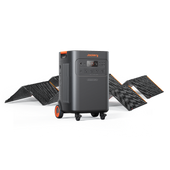












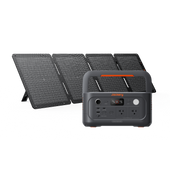



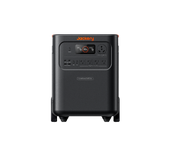
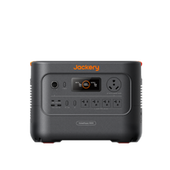






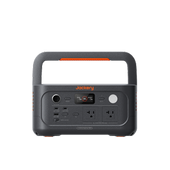





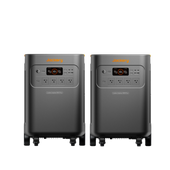
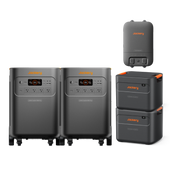





![[Add - on] Jackery Manual Transfer Switch for Explorer 5000 Plus - Jackery](http://www.jackery.com/cdn/shop/files/add-on-jackery-manual-transfer-switch-for-explorer-5000-plus-9017324.png?v=1754016782&width=170)
